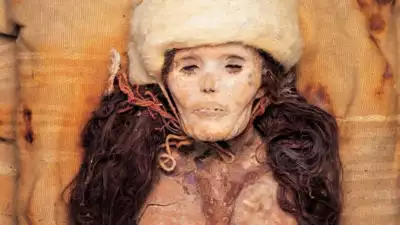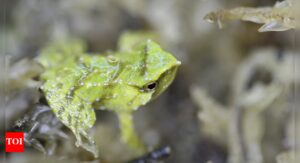

Scientists have uncovered what they believe to be the oldest cheese in the world, found within the remains of Bronze Age mummies in China’s Tarim Basin. The cheese, which dates back to around 2,000 BC, provides valuable insights into the dietary habits of ancient civilizations and the development of probiotic bacteria.
According to the New York Post, the cheese, identified as kefir cheese — a popular and healthful choice in modern times, was discovered smeared on the heads and necks of mummies belonging to the Xiaohe people.These well-preserved bodies, dating between 3,300 and 3,600 years old, were found in a cemetery where the mysterious white substance had baffled researchers for years.
The confirmation of the cheese’s identity began nearly two decades ago when scientists first noticed the enigmatic white residues. Initially believed to be a fermented dairy product, recent mitochondrial DNA analysis provided a clearer understanding of its composition, allowing researchers to identify it as kefir cheese.
Professor Qiaomei Fu, a prominent researcher from the Chinese Academy of Sciences, highlighting the importance of this finding, said, “This is the oldest known cheese sample ever discovered in the world.”
DNA analysis from three separate tombs revealed genetic material from both cows and goats, showcasing the intricate dairy practices of the Xiaohe people. Unlike their counterparts in Greece and the Middle East, the Xiaohe people separated different types of animal milk into distinct batches of cheese. Furthermore, the presence of fungal bacteria consistent with modern kefir grains allowed researchers to trace the lineage of this ancient dairy product, shedding light on its historical significance.



